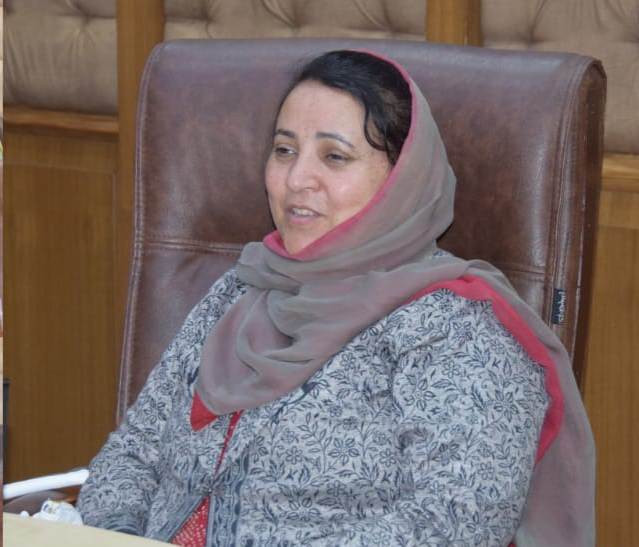Srinagar: The High Court of J&K and Ladakh has held that an authority has no power to act upon a complaint under the Sexual Harassment of Women at Workplace (Prevention, Prohibition and Redressal or POSH) Act filed beyond the condonable period of limitation of three months.
Allowing a petition by M Altaf Bhat, Office Superintendent at Income Tax Department facing allegations of harassment and outraging the modesty of a woman tax assistant, Justice Javed Iqbal Wani referred to an apex court judgment saying “if a statute requires a thing to be done in a particular manner, that thing has to be done in that manner alone”.
The judgment rendered the complaint filed by respondent lady and taken cognizance of by the Internal Complaints Committee (ICC) of the Tax department and the recommendation made therein illegal and invalid on the basis of the settled position of law.
The authority under the Sexual Harassment of women at Workplaces Act of 2013, had no power to act upon a complaint and pass orders thereon filed before it, beyond the condonable period of limitation of three months provided under proviso 2 of Section 9(1), read the judgment.
The lady in 2016, while working under the general superintendence of the petitioner Bhat filed a complaint before the Principal Commissioner of Income Tax, J&K, levelling allegations that Bhat remains most of the time under the influence of drugs and keeps playing videos on his office computer. The complaint was taken cognizance of by the higher-ups.
In February 2017, the Assistant Commissioner of Tax, Range-3, Srinagar, reported “the respondent 4 (complainant lady) has not been able to substantiate her allegations against the petitioner”.
Bhat further told the court that the lady yet filed an application before the Chief Judicial Magistrate, Srinagar, against him and levelled sexual harassment allegations.
The Magistrate directed the SHO Police Station Rajbagh to register FIR against Bhat under Section 354 RPC (outraging modesty of a woman) and investigate the matter.
An FIR was registered against Bhat which culminated in the filing of a charge-sheet before the court. Bhat was later on acquitted in September 2018.
However, in February 2021, Bhat received a copy of yet another complaint of sexual harassment dated 16th of October, 2017, filed by the lady through ICC. He came to know about it through WhatsApp, qua an alleged incident dated 25th of April, 2016.
But the complaint had been filed by the lady after a delay of more than one year and five months from the date of the alleged incident dated 25th of April, 2016.
“The ICC framed a report in the complaint on 25th of February, 2021, and made a recommendation of imposing a fine of Rs 1 lakh upon petitioner to be payable to respondent lady besides initiation of an action for misconduct against Bhat,” the petitioner Bhat stated before the court.
His lawyer Tasaduq Khwaja maintained that the entire proceedings before the ICC are non-est, without jurisdiction and initiative of the principles of natural justice and the procedure established by law.
In the objections filed by official respondents it was held that Bhat was legally and validly proceeded against by the ICC in terms of the provisions of the 2013 Act.
Khawaja, counsel for Bhat, contend that the complaint filed by the lady under the provisions of the Act of 2013 on 16th October, 2017, in respect of the alleged incident referred in the complaint dated 25th of April, 2016, could not have been taken cognizance of by the ICC in view of Section 9 (1) proviso 2.
“This envisages that an aggrieved woman may make a complaint in writing of sexual harassment at workplace to the Internal Committee within a period of three months from the date of incident and in case of series of incidents within a period of three months from the date of last incident and in terms of the proviso 2 appended to sub-section (1), the said period of three months for making the complaint has been made extendable to a further period of three months provided the circumstances suggest that the woman was prevented from filing the complaint within the said period,” he argued.
He further contends that the complaint could not have been dealt or proceeded with against the petitioner in view of the acquittal earned by the petitioner herein from the Court of Chief Judicial Magistrate, Srinagar.
Having held the complaint in question non-maintainable and proceedings initiated thereon invalid, the recommendations made thereof pale into insignificance and need not be adverted to, observed the judge .








